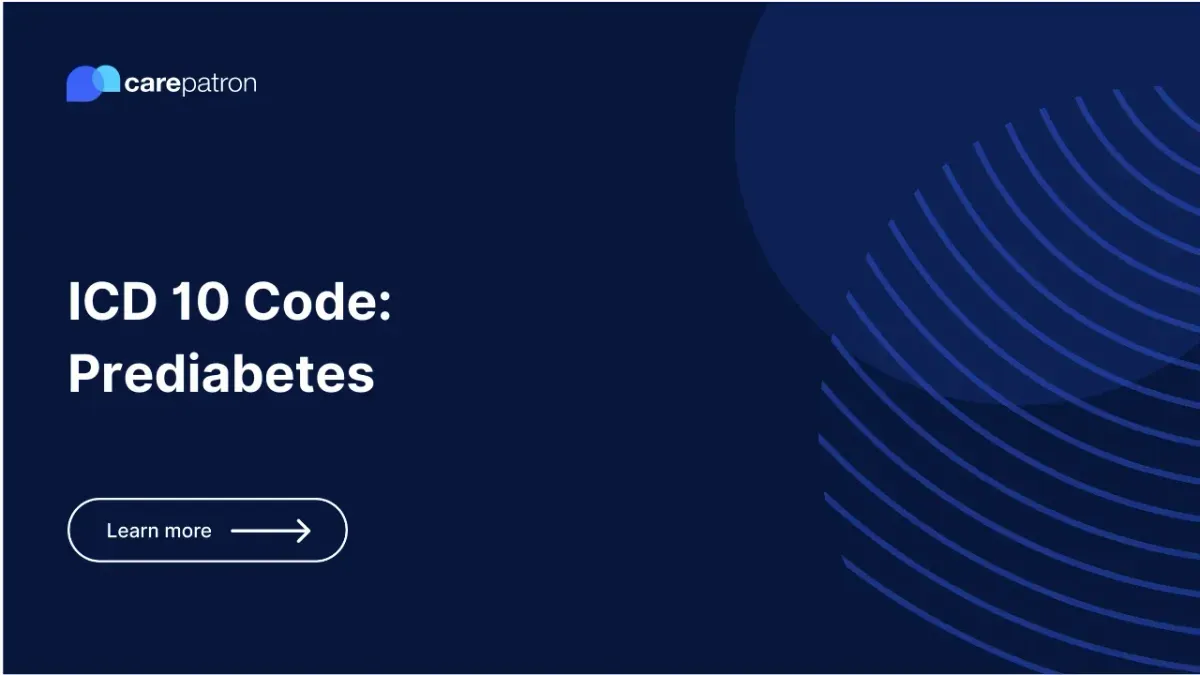
Prediabetes ICD-10-CM Codes
Learn about the prediabetes ICD-10-CM codes you can use through this guide.
Use Code
Commonly asked questions
Prediabetes ICD codes are used when a patient's blood glucose levels are consistently higher than normal but not high enough to be classified as diabetes. These codes are used for diagnosis, treatment planning, and medical billing. They help healthcare providers track the prevalence of prediabetes, assess its impact on public health, and determine the effectiveness of prevention and treatment strategies.
The primary treatments for prediabetes involve lifestyle changes to reduce blood sugar levels and prevent the progression to type 2 diabetes. These include a healthy diet, regular physical activity, weight loss for those overweight or obese, and potentially medication in some cases. The specific ICD-10 code for prediabetes can guide healthcare providers in determining the most appropriate treatment plan.
These codes help healthcare providers accurately document the patient's condition for better management and treatment planning.
EHR and practice management software
Get started for free
*No credit card required
Free
$0/usd
Unlimited clients
Telehealth
1GB of storage
Client portal text
Automated billing and online payments
